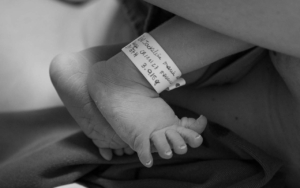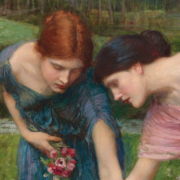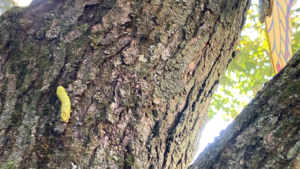What are you looking for?
“The two disciples heard what he said and followed Jesus. Jesus turned and saw them following him and said to them, ‘What are you looking for?’” John 1:38
My favorite hymn when I was a child was, Here I Am, Lord. I loved the rhythm and the simple prose, and I thought the sentiment behind the words was lovely even if I didn’t quite understand their importance. As an adult, the song continues to be my favorite hymn, and it brings tears to my eyes every single time I hear it. Though I still love the music and the words, it’s the deeper meaning that gets to me now. Jesus asks us to serve, and we need to respond like Samuel and the Apostles, ready to answer and do His will.
Awaiting God’s Call
This month, we celebrate the feast day of St. Elizabeth Ann Seton, our first American-born saint. Two of my three daughters graduated from Mount St. Mary’s in Emmitsburg, Maryland. Emmitsburg was the home and final resting place of Mother Seton. Mother Seton to Emmitsburg moved in 1809, where she founded the Sisters of Charity of St. Joseph’s, the first community for religious women established in the United States. It was in Emmitsburg where she also began St. Joseph’s Academy and Free School, the beginning of Catholic education in the United States.
Before becoming a nun, Elizabeth was a wife and mother. She was not Catholic but was very religious. While nursing her sick husband in Italy, she learned about Catholicism from friends who lived there and was intrigued by the Church and its sacred traditions. The more she learned and attended Mass, the more she felt called to become Catholic.
Hearing God’s Call
Years, later, she heard the call to become a nun, and later, she heard the call to found the order and the school in Emmitsburg.
Mother Seton wrote, “We know certainly that our God calls us to a holy life. We know that he gives us every grace, every abundant grace; and though we are so weak of ourselves, this grace is able to carry us through every obstacle and difficulty.”
Many generations before Mother Seton, Jesus asked Andrew and John, “What are you looking for?” (John 1:38) They immediately followed Him, asking where He was staying. Then they sought others and encouraged them to join as well (Andrew’s brother, Simon, John’s brother, James, and Andrew’s friend, Phillip). Without hesitating, they answered Jesus’ question with their actions.
Jesus still asks this question, but so many fail to hear it or understand from whom it comes. So many of us spend our lives searching for meaning, for happiness, for belonging when Jesus openly and willingly offers us all that and more. When faced with Jesus’ question, we look for the answer in other people, in media and entertainment, or in addictions, and often overlook the most basic, most obvious places—Holy Scripture, the Mass, the Church. It was in the Church, at Mass, and through the sacraments that Mother Seton heard the call to convert, to become a nun, to serve, and to teach.
Answering God’s Call
We, too, are being called. We can hear God’s voice each time we attend Mass, go to Confession, or seek the Lord in Adoration. He is calling out to us to help Him build His Kingdom, to serve, to teach, and to bring others to Him.
Listen for the voice of Jesus in your daily life. Shut out the noise and the distractions. Be alert and awake. He is asking, “What are you looking for?” All you need to do is answer in the same way Mother Seton did, “Here am I, Lord; I come to do your will,” (1 Samuel 3:8, Psalm 40:9). “Speak, for your servant is listening” (1 Samuel 3:10).
Let us pray, “Oh my God, forgive what I have been, correct what I am, and direct what I shall be” (St. Elizabeth Seton). Amen.
copyright 2025 Amy Schisler
Edited by Heather Gaffney















 I asked how they were and then about their
I asked how they were and then about their





